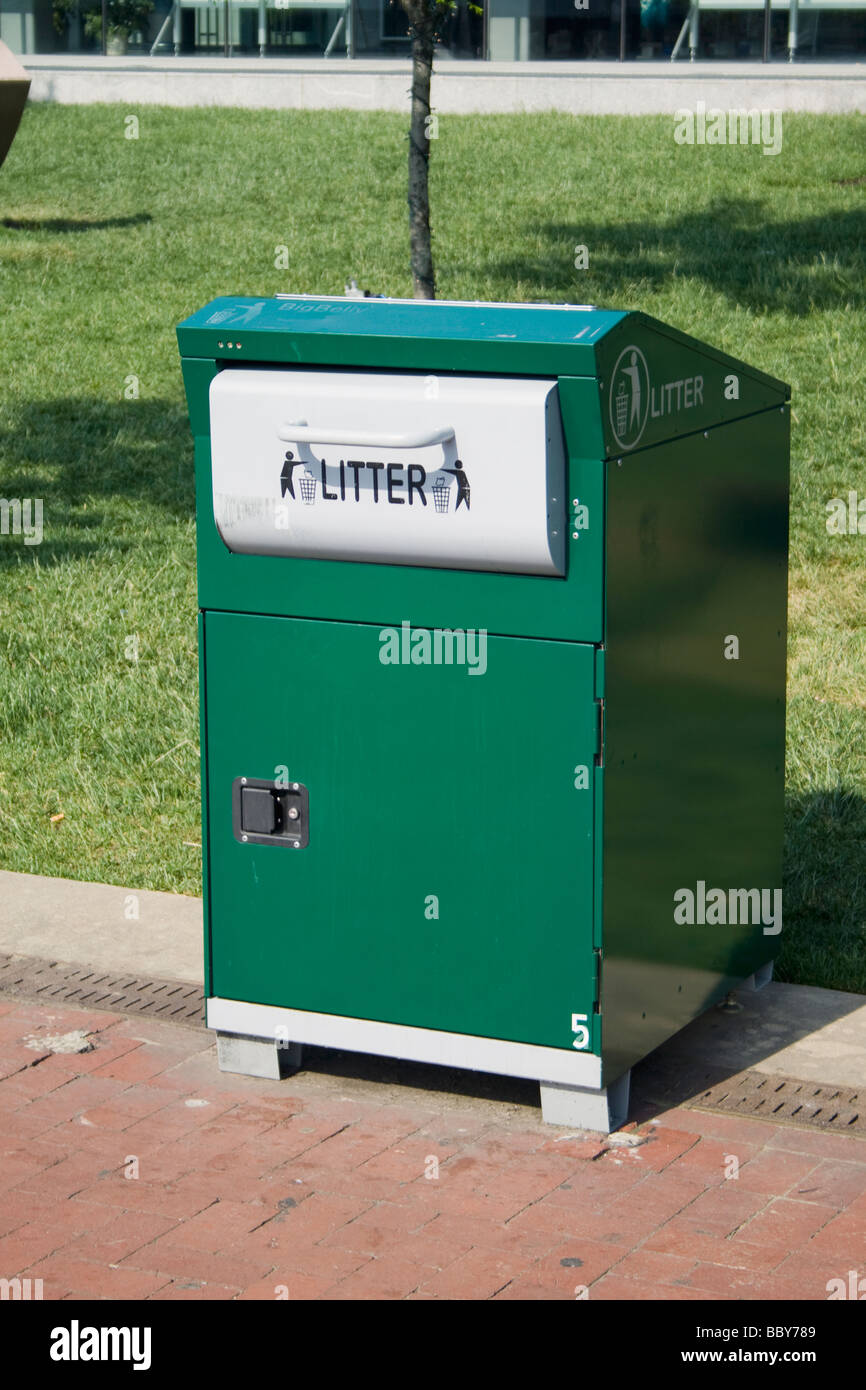
- #Baltimore gets smart trash cans drivers
- #Baltimore gets smart trash cans full
- #Baltimore gets smart trash cans software
The segregation, handling, transport, and disposal of waste needs to be properly managed to minimize the risk to the health and safety of patients, the public, and the environment. It is estimated that in 2006 the total amount of municipal solid waste generated globally reached 2.02 billion tones, representing a 7% annual increase since 2003 (Global Waste Management Market Report 2007). “Route optimization will reduce the number of trips of the trucks hence less traffic will be generated and less pollutant emissions will be released into the air.Rapid increase in volume and types of solid and hazardous waste due to continuous economic growth, urbanization and industrialization, is becoming a burgeoning problem for national and local governments to ensure effective and sustainable management of waste. “Of course there are also other non-monetary benefits in deploying our smart waste collection solution,” Tania Jose, Urbiotica’s marketing and communication manager, told Cisco. One of the reasons Baltimore signed off on its solution was to get rid of rat populations that are kept alive by unaccounted for trash bags. Other benefits of implementing such a system are less obvious. In Barcelona alone, more than $4 billion in savings is expected in the next 10 years due to the adoption of IoT-aided waste management technology, according to Cisco. All of these increases in efficiency not only provide more suitable living, but also decrease a city’s operating expenses (OPEX).
#Baltimore gets smart trash cans full
Route optimization plays a major part in making all of the pieces work effectively, and sensors that determine how full trash bins are help create a priority-based schedule for drivers. The major benefit for putting sensors on trash cans is that waste management companies can more effectively clean up the city’s dumpsters and bins, providing citizens with a safer, cleaner living area.

Their product uses wireless sensors to generate demand-based routes, and give companies a backlog of all the analytics, estimates and reports, which can be accessed using web services.
#Baltimore gets smart trash cans software
In Baltimore, the Board of Estimates approved an $8.94 million to buy 210,000 garbage cans in order to keep streets cleaner, according to the Baltimore Brew.Īnd companies like Enevo offer software solutions specifically for waste management. The sensor measures the container filling level using ultrasonic technology, and transmits all captured information to the Urbiotica Software Platform, where the data is processed and distributed to a third-party application for route planning optimization. It requires one wireless and autonomous machine-to-machine sensor to be installed on a container lid. The deployment processes for smart trash cans is fairly simple. Barcelona-based smart city solution company Urbiotica has deployed waste management sensors on trash bins in Barcelona, Figueres, Mallorca, Guadalajara and Ashdod, Israel, and is starting some pilots in France, Macedonia, Argentina, Chile, and Brazil, according to Cisco. Several cities around the world are pursing industrial IoT solutions for waste management. Implementing a solution with asset tracking These two advantages significantly reduce the time it takes to effectively address potential waste build-up problems. The use of industrial IoT solutions and devices for waste management revolves around two main benefits: figuring out the best time to collect waste, and figuring out what route trucks should follow.
#Baltimore gets smart trash cans drivers

More efficient waste reduction benefits a number of parties, many of which aren’t directly invested in trash disposal: source: heliflyer7/YoutubeĪ 21st-century solution to waste management and collection is an essential element to what makes up a “smart city.” Companies around the world are installing industrial IoT systems to trash cans and bins so that waste management companies can obtain the data they need to optimize the important services they offer.

Creating an efficient system to get rid of that waste by increasing the productivity of waste management and disposal companies is beneficial to the health of citizens. Trash bins are overflowing with waste that potentially contains dangerous and health-affecting chemicals found in everyday products. In 2013, Americans generated about 254 million tons of trash, or 4.6 pounds per person per day, according to the U.S.


 0 kommentar(er)
0 kommentar(er)
